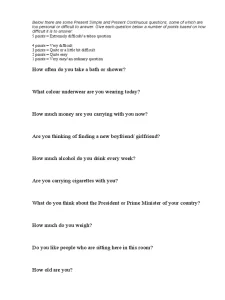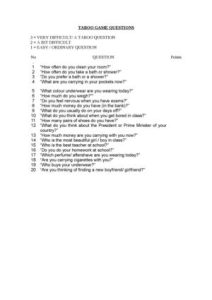Often modern debates between religious and non-religious people end up hinging on the meaning and use of why questions. Consider a fake dialogue between A and B:
A: Science may be able to say tell us how things are but it will never explain why things are.
B: Like what?
A: Well it doesn’t answer the Deepest Question of AllTM — why is there something rather than nothing?
B: That’s a meaningless question.
A: Well there you go, proving my point that the New Atheists are just as literal and closed-minded as the fundamentalists!
I’ve made the silliness a bit more apparent but usually these arguments are just as silly. They’re silly because they hinge on two completely different meanings of “why”. This would make “why” an excellent candidate for a word to taboo, as per this post on LessWrong. From the post, it’s often useful to play Taboo with a key concept and rephrase it entirely so as to avoid the assumptions hidden inside the word in question. It might seem that “why” is one of those atomic words that can’t be broken down further but it’s actually quite easy. The resulting sentences are clumsier (meaning the word “why” does serve a purpose in English!) but they are more precise. Some examples:
| Why question | Rephrased question with “why” tabooed |
| Why can’t humans travel faster than light? | What physical law prevents humans from travelling faster than light? |
| Why did you slap me in the face? | What was your motivation in slapping me in the face? |
| Why do men have nipples? | What is the historical origin of men having nipples? |
| Why is cat ownership illegal in this country? | What were the motivations for this country passing a law against cat ownership? |
| Why did the chicken cross the road? | *What were the physical causes that contributed to the chicken crossing the road? |
| Why did the chicken cross the road? | *What was the chicken’s goal in crossing the road? |


The main problem with why is that it has two meanings. You can see this from the last 2 entries in the table which give 2 different interpretations of the same question. Why1 is in effect asking how something came about. Why2 is asking about minds, intentions and psychology. The why-questions that are typically seen as meaningful are usually doing one of two things (sometimes both):
- Asking a why2 question without initially justifying that there’s a mind involved. The god is cleverly hidden in the question but trying to answer it requires granting the mind.
- Asking a why2 question disguised as a why1 question.
Given this, “why is there something rather than nothing?”, “why does the universe exist?” and so on are always silly questions in that they’re misleading. They should either be rephrased as why1 (how) questions or if not then at least the implicit god should be made explicit. For example, “what is the purpose of the universe existing?” or even better “what was Jesus’s intent in creating the universe?”
The word why is very useful; you can see from the table that going without it makes sentences a lot more awkward. But it is possible and given the misleading nature of why in Big Questions, I think it’s useful to taboo it entirely at least in that area.





0 Comments